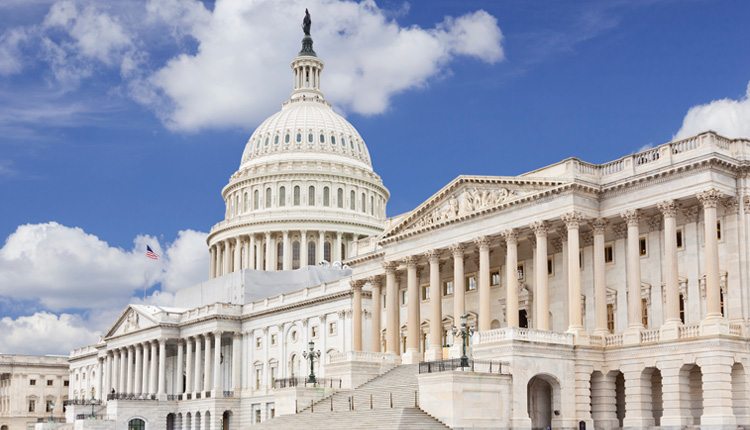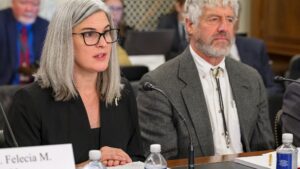With the renegotiation of NAFTA and a new Farm Bill, ASTA is advocating for a viable and efficient regulatory system for the industry.
The American Seed Trade Association’s (ASTA) 2018 federal priorities for the coming year fall within three broad categories, maintaining access to international markets through robust trade agreements, securing seed related priorities in the Farm Bill, and actively engaging with the administration as they work to reduce regulatory burdens.

“The Trump Administration continues to move forward with its renegotiation of the North American Free Trade Agreement (NAFTA),” says Jane DeMarchi, ASTA vice president, government and regulatory affairs.
“The current plan is to have the negotiations concluded by March 2018. NAFTA has been an extremely beneficial trade agreement for agriculture and the seed industry specifically. Collectively, the message to the Trump Administration regarding agriculture and NAFTA has been to ‘do no harm,'” DeMarchi says.
It is important for members of the seed industry to communicate with their elected representatives how important trade with Canada and Mexico is for seed companies, which currently sell $600 million worth of seed to those markets.
As the 115th Congress works throughout 2018 to craft a new Farm Bill, ASTA is playing an active role in sharing priorities that are important to the continued success of the seed industry and our grower customers.
Priority Farm Bill Issues
• Commodity Programs: Maintain current language ensuring that program requirements do not adversely affect hybrid seed growers.
• Conservation Programs: ASTA advocates for investments in flexible and efficient conservation programs that provide producers the financial and technical assistance needed to conserve our nation’s most precious resource.
“The U.S. seed industry plays a unique role in conservation programs,” says ASTA President and CEO Andy LaVigne.
“Whether farmers are enrolling acres in the Conservation Reserve Program (CRP), signing up for the Environmental Quality Incentives Program to promote wildlife habitat or other environmental benefits, or strengthening conservation efforts on working lands by implementing management activities through the Conservation Stewardship Program, all of these have at least one thing in common: a need for quality, professionally produced seed,” according to LaVigne.
ASTA recommends including Farm Bill language that recommends that State Technical Committees (STC) establish State Seed Subcommittees to address seeding recommendations for conservation programs.
Cover Crop usage in production agriculture is one of the most promising practices to address soil health. Policy refinements are still needed so that producers are encouraged to use cover crops.
Trade: Increase funding for international trade programs such as the Market Access Program (MAP), Foreign Market Development Program (FMD), and specialized programs like the Technical Assistance for Specialty Crops (TASC). Resources from MAP and FMD are critical to ASTA’s ability to provide international leadership and work with trading partners to resolve technical barriers to the movement of seed.
Federal research and education: These programs are supported through the Farm Bill to help secure the U.S. position as the global leader in agricultural innovation. Specifically, ASTA supports continued funding for pest and disease prevention programs, funding for the Agriculture and Food Research Initiative (AFRI), and continued funding for the Foundation for Food and Agriculture Research (FFAR).
One of the major pillars of the Trump Administration is reducing regulatory burdens. On that front, the federal agencies have been fairly busy._ASTA has provided recommendations to USDA and EPA on areas of potential improvement in regulatory approaches.
“We are eagerly awaiting the final report of the Agriculture and Rural Prosperity Task Force led by USDA Secretary Perdue which will lay out in greater detail the administration’s ideas for the future of agriculture which will likely include priorities for regulatory reform efforts,” DeMarchi says.
State Governmental Affairs 2018 Expectations

“As a result of multiple meetings with commodity groups in 2017, ASTA’s priorities have focused around awareness, communication, coordination, cooperation and long-term viability of the seed industries’ commitment to quality seed, and the importance of using professionally produced seed in agricultural production,” says Pat Miller, ASTA director of state government affairs.
The ASTA State Governmental Affairs Working Group has evolved into ASTA’s primary communication forum for exchange of information for state legislative and regulatory seed activities.
Participants include a majority of state and regional associations, industry governmental affairs representatives, and related national associations.
The Working Group meets monthly via webinar to review all states legislation. The next face-to-face meeting will be at the ASTA Policy & Leadership Development Conference in June 2018. The program will include a state legislative recap and issues update.
Anticipated issues in the U.S. during 2018
• Invasive species/noxious weeds issues continues to be a high priority for the grower community and, subsequently, for the seed industry.
• Agricultural chemicals are a very important tool in the tool box that complements seed’s potential benefits. ASTA recognizes this synergy and assists the crop protection industry wherever possible.
• Pre-emption of local laws by state governments.
• Coexistence in general production, including crop-specific regulations.
• Potential legislation arises occasionally that would attempt to regulate crop selection by growers. Different agricultural production systems have been successfully practiced in proximity to one another for many years and in many parts of the world. No regulations are actually necessary.
• Consistency of state laws and regulations, including labeling.
• Seed production and seed marketing is consistently conducted on an interstate basis. In this regard, seed produced in one or more states by the same company is often distributed across multiple state boundaries.
With this, seed distributors must comply with labeling requirements, testing regimes, and applicable standards established by the laws of each state individually.
• State regulatory infrastructure & seed lab uniformity. ASTA is committed to the support of a viable and efficient regulatory system for the seed industry.
Per the strategic plan, it is a priority of ASTA’s policy efforts to ensure adequate funding to enable a sustainable state infrastructure to support these regulatory systems.
“The seed industry must continue to effectively communicate to the grower community that their production systems are focused on seed quality and purity, and that they are doing all that is viable to ensure seed purity and quality,”
Miller says. “It is important that seed labs deliver consistent and reliable results, as they are a critical link in the seed production process.”













